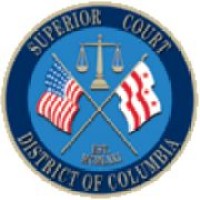Detailed Documentation
Comprehensive analysis of the DC Superior Court case and judicial misconduct allegations
Key Legal Issues
The case raises critical legal questions including:
- Judicial Misconduct: Allegations of bias, incompetence, and procedural violations
- Prosecutorial Ethics: Questions about prosecutorial discretion and misconduct
- Attorney-Client Privilege: Violations of confidential communications
- Due Process Rights: Protection of defendants' constitutional rights
Judicial Misconduct
Judge Heidi M. Pasichow
Judge Pasichow presided over significant portions of the case and faces multiple allegations:
- Memory Problems: Documented instances of forgetfulness and contradictory rulings
- Motion Neglect: Failure to rule on critical motions for extended periods
- Retaliatory Actions: Alleged retaliation for filing complaints about delays
- Counsel Manipulation: Improper dismissal and appointment of counsel
Judge James A. Crowell
Judge Crowell's involvement in the case raises serious concerns:
- Racial Bias: Allegations of racial bias and discriminatory treatment
- Incompetence: Multiple legal errors and procedural violations
- Temperamental Behavior: Documented instances of unprofessional conduct
- Illegal Sentencing: Imposition of sentences that violate D.C. law
Prosecutorial Misconduct
AUSA John Giovannelli's Role
The case involves extensive allegations of prosecutorial misconduct by AUSA John Giovannelli:
- Personal Bias: AUSA Giovannelli's personal animosity toward the defendant
- Retaliatory Charges: Filing of additional charges in response to defendant's exercise of rights
- Improper Motives: Use of prosecutorial authority for personal vendetta
- Evidence Manipulation: Reliance on evidence provided by disbarred attorney
Vindictive Prosecution
Evidence suggests that the prosecution was motivated by personal animosity rather than legitimate law enforcement concerns:
- Personal Bias: AUSA Giovannelli's personal animosity toward the defendant
- Retaliatory Charges: Filing of additional charges in response to defendant's exercise of rights
- Improper Motives: Use of prosecutorial authority for personal vendetta
- Evidence Manipulation: Reliance on evidence provided by disbarred attorney
Attorney-Client Privilege Violations
Bernard Grimm's Role
Disbarred attorney Bernard Grimm's conduct represents a fundamental breach of legal ethics:
- Unauthorized Disclosure: Grimm disclosed privileged communications to prosecutors
- Evidence Fabrication: Grimm provided fabricated evidence to the government
- Client Betrayal: Grimm actively worked against his own client's interests
- Collusion: Unprecedented cooperation with prosecutors to harm his client
Impact on Legal System
The attorney-client privilege violations have broader implications:
- Constitutional Violations: Violations of Sixth Amendment right to counsel
- Systemic Problems: Demonstrates gaps in attorney disciplinary systems
- Public Confidence: Undermines confidence in the legal profession
- Due Process: Deprives defendants of fair trial rights
Ineffective Assistance of Counsel
Albert Amissah's Representation
The case involves serious allegations of ineffective assistance of counsel:
- Expert Witness Failures: Counsel failed to secure necessary expert witnesses
- Calendar Management: Counsel misrepresented his availability, causing trial delays
- Discovery Issues: Counsel failed to properly handle discovery materials and university records
- Communication Breakdown: Counsel failed to communicate with the defendant about critical case developments
Sixth Amendment Violations
The ineffective assistance violated constitutional rights:
- Right to Counsel: Defendant denied effective representation
- Right to Counsel of Choice: Defendant denied right to choose competent counsel
- Due Process Violations: Defendant denied fair trial due to incompetent representation
- Prejudice to Defense: Ineffective assistance prejudiced defendant's case
Impact and Significance
Systemic Issues
This case has broader implications for the legal system:
- Judicial Oversight: Raises questions about judicial accountability and oversight
- Prosecutorial Ethics: Demonstrates need for prosecutorial ethics reform
- Attorney Regulation: Highlights gaps in attorney disciplinary systems
- Due Process: Shows how systemic failures can deprive defendants of fair trials
Legal Precedent
The case may establish important legal precedents regarding:
- Attorney-Client Privilege: Protection of privileged communications
- Judicial Misconduct: Remedies for judicial bias and incompetence
- Prosecutorial Ethics: Limits on prosecutorial discretion
- Due Process Rights: Protection of defendants' constitutional rights
 District of Columbia Superior Court
District of Columbia Superior Court